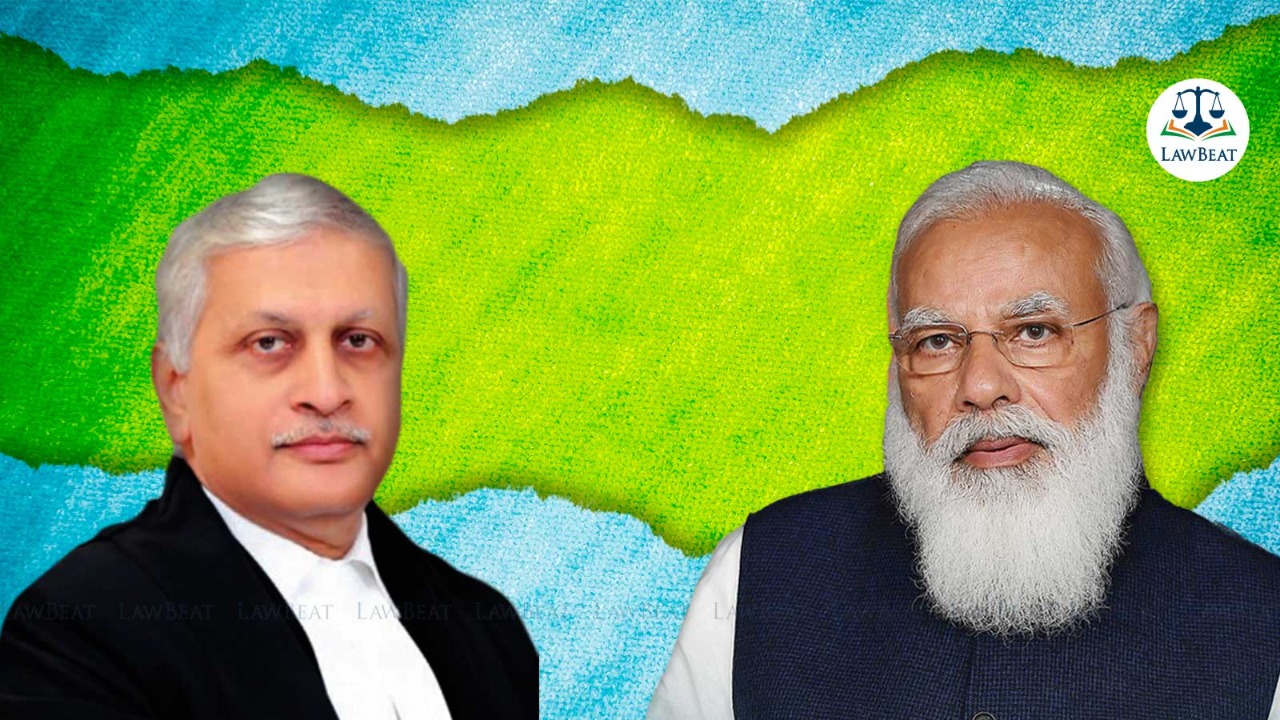"Backlog due to inadequate Judge strength of 20 per 1 million people, increase in retirement age of judges necessary": Lawyer writes to PM Modi

Making a case for increase in retirement age of Judges, the letter written to PM Modi states that due to inaction of the successive governments, the bench loses tremendous legal experience when Judges are forced to retire before their septuagenarian year
Advocate Ashwini Upadhyay has written to Prime Minister Narendra Modi requesting him to direct the Ministry of Law and Justice to take steps for increasing the retirement age of Judges of Subordinate Courts to 65 years and Judges of High Courts and Supreme Court to 70 years.
"Increase in retirement age is not only necessary to reduce the pendency of cases but also essential to attract and retain the best legal talent in the judiciary. To reduce judicial and procedural error, India needs more experienced Judges", the letter states.
It is thus sought that the Law Ministry should be directed to implement the recommendations of the Law Commission and Venkatachaliah Commission on Judicial Reform and also direct the Finance Ministry to allocate sufficient funds from the Consolidated Fund of India to meet the demands of State Judiciary as proposed by the National Commission to Review the Working of the Constitution.
Upadhyay has argued that our Judiciary would take around 100 years to clear the backlog and the reason for such backlog is inadequate judge strength, which is around 20 judges per one million people, as against Australia's 58 per million, the United Kingdom's 100 and the United States of America's 130 per million.
In this letter, Upadhyay has claimed that in 2002, the Supreme Court had directed the Centre to raise the judge - population ratio to 50 per million in a phased manner, as recommended by the Law Commission in its 120th report but the suggestion has not been implemented.
"In High Courts and Supreme Court, finest lawyers don’t want to become judges because instead of continuously giving valuable services to the nation, our judges are compelled to retire at the very early age i.e. 62 years and 65 years respectively. The Department Related Parliamentary Standing Committee on Personal, Public 2 Grievances, Law and Justice very correctly refers to the problem caused by early retirement of the judges. Due to inaction of the successive governments, the bench loses tremendous legal experience when Judges are forced to retire before their septuagenarian year...", the letter adds.
In developed countries, the letter states, the retirement age of the Higher Court Judges varies from 70-80 years and in some countries, they work for lifetime. For example, Judges retires at the age of 75 years in the United Kingdom and Canada and at the age of 70 years in Australia, Belgium and Norway and works for lifetime in the United States, Russia, New Zealand and Iceland, subject to physical and mental fitness, Upadhyay adds.
The Law Commission has addressed the issues of delay, pendency and arrears in several reports since 1955, however, the Centre has not taken steps to implement them, the letter submits.
In conclusion, Advocate Upadhyay has highlighted that inordinate delay has become a common feature of the Indian judicial system.
In July, Union Minister for Law and Justice Kiren Rijiju informed Parliament that there was no proposal to increase the retirement age of Supreme Court and High Court judges, on Thursday told Parliament.
“The Constitution (114th Amendment) Bill was introduced in 2010 to increase the retirement age of high court judges to 65. However, it was not taken up for consideration in Parliament and lapsed with the dissolution of the 15 Lok Sabha,” Rijiju said in a written reply to Rajya Sabha.
According to Article 124(2) of the Constitution, the age of retirement for Supreme Court judges is 65.
As per Article 217(1) of the Constitution, High Court judges retire at 62. Initially, the retirement age of High Court judges was 60, which was later in 1963 increased to 62 through the 114th constitutional amendment.
Attorney General for India KK Venugopal had expressed the need for increasing the age of retirement of judges upon Ex-CJI NV Ramana's retirement. "This is no age for a judge to retire," he said. In fact, he has consistently spoken about the need to increase the age of retirement of judges at every farewell of Supreme Court judges since 2017.
